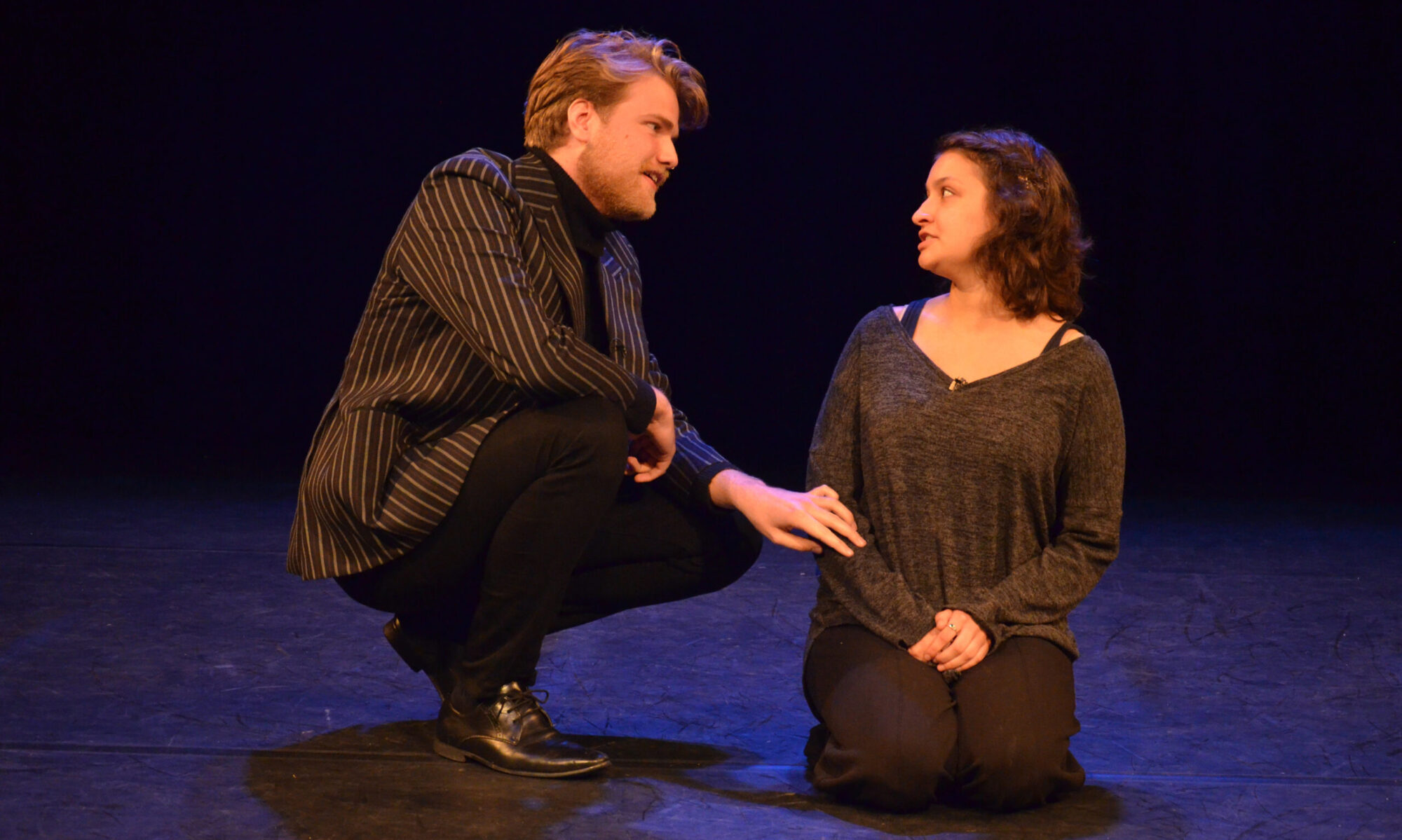
‘Know the difference, from an actor’s point of view, between Shakespeare and Middleton, or Webster and Marston. Each makes a different and unique demand on an actor.’ – Simon Usher
Usher’s crisply phrased challenge points the way for us.
Experience in the rehearsal room, across a series of productions of major seventeenth-century comedies at York, has convinced us of the accuracy of his comment.
Yet scholarship has traditionally paid little close attention to the local textual and performance reverberations of this phenomenon.
We believe that it is in this area that a productive union can potentially be forged between academic insights and the detailed work of the rehearsal room.
In our early experiments, therefore, we juxtaposed rehearsals of sequences by dramatists who seem to us to make contrasting demands on their performers.
In addition, we set ourselves the challenge of starting to notate what we believe those differences to be.
This is not, in our view, a task which can be successfully undertaken by analysis in the study alone.
It requires a combination of analysis and rehearsal enquiry and experiment.
EARLY EXPERIMENTS
We began this stage of our work in autumn 2019 with public performances of sequences from three masterpieces from the 1610s and 1620s.
We had planned a larger-scale public sequel to this first experiment in June 2020, devoted to city comedy; but the pandemic made that impossible.
Since summer 2020, however, we have continued our explorations online, via the auspices of Zoom, by rehearsing an array of soliloquies by different playwrights.
These include speeches by Christopher Marlowe, Ben Jonson, Thomas Middleton, John Fletcher, Thomas Heywood, and John Ford.
We are launching this website with a sample of this work, in the form of performances of five soliloquies by characters in Middleton’s Women Beware Women.
In our work with the actors we paid detailed attention to rhythm and metre, the patterns by which thoughts and perceptions were developed, reprised, echoed and deepened across each speech, the intricate interplay within a speech between line and phrase (as in George T. Wright’s classic analysis of Shakespeare’s verse), and the internal sub-divisions into which it divided the experience it conveyed (and the reasons, emotional and intellectual, for those sub-divisions).
For the Middleton in particular, the question of how each speaker related their personal experience to presumed larger patterns of human behaviour and fate kept suggesting itself as a key issue.
That impulse is common to all five of these soliloquies; but the characters who utter them each puts it to work in distinctive ways.
FIVE MIDDLETONIAN SOLOISTS
Working on these solos across a number of rehearsals enhanced our respect for Middleton’s craftsmanship, and his agile ability to shape his idiosyncratic form of blank verse to the precise needs of specific crises and turning-points in the dramatic action.
We aim to explore some of our findings in a future article.
For the present, we offer you the following quintet of videos as examples of our work-in-progress. You can find transcriptions of the scenes and images from the first quarto via the indicated links.
- Isabella (Lauren Moakes) – 1.2 (view transcript)
Isabella has just met the rich ward whom her father insists she must marry, in order to add his wealth to her already considerable inheritance. Her only words in the scene (and the play) to date have been three syllables of protest – “Dear father!” – which the latter swiftly cuts short. Now, appalled by her husband-to-be’s grossness and inanity, she turns to the audience and unburdens the distress that overwhelms her.
Guardiano (Joshua Welch) – 2.2 (view transcript)
Guardiano has been the agent to lure an unsuspecting Bianca to a room where she can be surprised by the Duke and raped. As the Duke achieves his satisfaction offstage, Guardiano reappears and confides to us his satisfaction in the service he has performed.
- Leantio’s Mother (Judy Emerick) – 3.1 (view transcript)
In the aftermath of her catastrophic encounter with the Duke, Bianca’s disturbance is reflected in the fights she picks with the mother of her husband Leantio. Previously quiescent, she now attacks and scorns the woman who has made her welcome. In the aftermath of their latest confrontation, the astonished mother-in-law expresses to us her consternation at this sudden transformation of character.
- Leantio (Ben Kawalec) – 3.1 (view transcript)
Leantio is a hard-working financial go-between, whose work compels him to travel all week. In this scene, he returns home, elated at the thought of seeing, and enjoying, his new-wed wife Bianca again, ignorant of the horror that has happened to her. Before entering the house, he pauses to relish the pleasures which (he thinks) lie ahead for him.
- Bianca (Hannah Eggleton) – 4.1 (view transcript)
The Duke makes Bianca an offer that, with her honour despoiled by his actions, she feels she cannot afford to refuse. So she is now installed as his mistress, dressed in the resplendent clothes and jewels he has bestowed on her. But, alone on stage, she expresses to us the true state of her thoughts and emotions.
